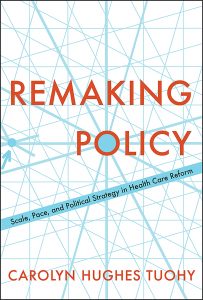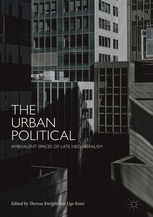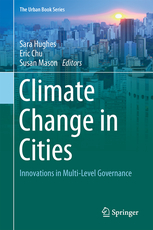
Remaking Policy: Scale, Pace, and Political Strategy in Health Care Reform
One of the most persistent puzzles in comparative public policy concerns the conditions under which discontinuous policy change occurs. In Remaking Policy, Carolyn Hughes Tuohy advances an ambitious new approach to understanding the relationship between political context and policy change.
Focusing on health care policy, Tuohy argues for a more nuanced conception of the dynamics of policy change, one that makes two key distinctions regarding the opportunities for change and the magnitude of such changes. Four possible strategies emerge: large-scale and fast-paced (“big bang”), large-scale and slow-paced (“blueprint”), small-scale and rapid (“mosaic”), and small-scale and gradual (“incremental”). As Tuohy demonstrates, these strategies are determined not by political and institutional conditions themselves, but by the ways in which political actors, individually and collectively, read those conditions to assess their prospects for success in the present and over time.
Drawing on interviews as well as primary and secondary accounts of ten health policy cases over seven decades (1945—2015) in the US, UK, the Netherlands, and Canada, Remaking Policy represents a major advance in understanding the scale and pace of change in health policy and beyond.

The Price of Prestige: Conspicuous Consumption in International Relations
If wars are costly and risky to both sides, why do they occur? Why engage in an arms race when it’s clear that increasing one’s own defense expenditures will only trigger a similar reaction by the other side, leaving both countries just as insecure—and considerably poorer? Just as people buy expensive things precisely because they are more expensive, because they offer the possibility of improved social status or prestige, so too do countries, argues Lilach Gilady.
In The Price of Prestige, Gilady shows how many seemingly wasteful government expenditures that appear to contradict the laws of demand actually follow the pattern for what are known as Veblen goods, or positional goods for which demand increases alongside price, even when cheaper substitutes are readily available. From flashy space programs to costly weapons systems a country does not need and cannot maintain to foreign aid programs that offer little benefit to recipients, these conspicuous and strategically timed expenditures are intended to instill awe in the observer through their wasteful might. And underestimating the important social role of excess has serious policy implications. Increasing the cost of war, for example, may not always be an effective tool for preventing it, Gilady argues, nor does decreasing the cost of weapons and other technologies of war necessarily increase the potential for conflict, as shown by the case of a cheap fighter plane whose price tag drove consumers away. In today’s changing world, where there are high levels of uncertainty about the distribution of power, Gilady also offers a valuable way to predict which countries are most likely to be concerned about their position and therefore adopt costly, excessive policies.

Dangerous Minds: Nietzsche, Heidegger, and the Return of the Far Right
Following the fall of the Berlin Wall and demise of the Soviet Union, prominent Western thinkers began to suggest that liberal democracy had triumphed decisively on the world stage. Having banished fascism in World War II, liberalism had now buried communism, and the result would be an end of major ideological conflicts, as liberal norms and institutions spread to every corner of the globe. With the Brexit vote in Great Britain, the resurgence of right-wing populist parties across the European continent, and the surprising ascent of Donald Trump to the American presidency, such hopes have begun to seem hopelessly naïve. The far right is back, and serious rethinking is in order.
In Dangerous Minds, Ronald Beiner traces the deepest philosophical roots of such right-wing ideologues as Richard Spencer, Aleksandr Dugin, and Steve Bannon, to the writings of Nietzsche and Heidegger—and specifically to the aspects of their thought that express revulsion for the liberal-democratic view of life. Beiner contends that Nietzsche’s hatred and critique of bourgeois, egalitarian societies has engendered new disciples on the populist right who threaten to overturn the modern liberal consensus. Heidegger, no less than Nietzsche, thoroughly rejected the moral and political values that arose during the Enlightenment and came to power in the wake of the French Revolution. Understanding Heideggerian dissatisfaction with modernity, and how it functions as a philosophical magnet for those most profoundly alienated from the reigning liberal-democratic order, Beiner argues, will give us insight into the recent and unexpected return of the far right.
Beiner does not deny that Nietzsche and Heidegger are important thinkers; nor does he seek to expel them from the history of philosophy. But he does advocate that we rigorously engage with their influential thought in light of current events—and he suggests that we place their severe critique of modern liberal ideals at the center of this engagement.

The Elgar Companion to Innovation and Knowledge Creation
This unique Companion provides a comprehensive overview and critical evaluation of existing conceptualizations and new developments in innovation research. It draws on multiple perspectives of innovation, knowledge and creativity from economics, geography, history, management, political science and sociology. The Companion brings together leading scholars to reflect upon innovation as a concept (Part I), innovation and institutions (Part II), innovation and creativity (Part III), innovation, networking and communities (Part IV), innovation in permanent spatial settings (Part V), innovation in temporary, virtual and open settings (Part VI), innovation, entrepreneurship and market making (Part VII), and the governance and management of innovation (Part VIII).

The Urban Political: Ambivalent Spaces of Late Neoliberalism
This book examines the political and economic trajectories of cities following the 2008 financial crisis. The authors claim that in this era—which they dub “late neoliberalism”—urban spaces, institutions, subjectivities, and organizational forms are undergoing processes of radical transformation and recomposition. The volume deftly argues that the urban political horizon of late neoliberalism is ambivalent; marked by many progressive mobilizations for equality and justice, but also by regressive forces of austerity, exploitation, and domination.

Responses to Marx’s Capital
Responses to Marx’s Capital : From Rudolf Hilferding to Isaak Illich Rubin is a collection of primary sources dealing with the reception of the economic works of Karl Marx from the First to the Third International. The documents, translated for the first time from German and Russian, range from the original reviews of the three volumes of Capital and the three volumes ofTheories of Surplus Value to the debates between the Marxist economists and the bourgeois academic representatives of the theory of marginal utility and the German historical school. The volume closes with six essays by the prominent economist Isaak I. Rubin, including ‘Essays on Marx’s Theory of Money’ and ‘The Dialectical Development of Categories in Marx’s Economic System’.

Climate Change in Cities: Innovations in Multi-Level Governance
This book presents pioneering work on a range of innovative practices, experiments, and ideas that are becoming an integral part of urban climate change governance in the 21st century. Theoretically, the book builds on nearly two decades of scholarships identifying the emergence of new urban actors, spaces and political dynamics in response to climate change priorities. However, it further articulates and applies the concepts associated with urban climate change governance by bridging formerly disparate disciplines and approaches. Empirically, the chapters investigate new multi-level urban governance arrangements from around the world, and leverage the insights they provide for both theory and practice.
Cities – both as political and material entities – are increasingly playing a critical role in shaping the trajectory and impacts of climate change action. However, their policy, planning, and governance responses to climate change are fraught with tension and contradictions. While on one hand local actors play a central role in designing institutions, infrastructures, and behaviors that drive decarbonization and adaptation to changing climatic conditions, their options and incentives are inextricably enmeshed within broader political and economic processes.
Resolving these tensions and contradictions is likely to require innovative and multi-level approaches to governing climate change in the city: new interactions, new political actors, new ways of coordinating and mobilizing resources, and new frameworks and technical capacities for decision making. We focus explicitly on those innovations that produce new relationships between levels of government, between government and citizens, and among governments, the private sector, and transnational and civil society actors. A more comprehensive understanding is needed of the innovative approaches being used to navigate the complex networks and relationships that constitute contemporary multi-level urban climate change governance.
Debra Roberts, Co-Chair, Working Group II, IPCC 6th Assessment Report (AR6) and Acting Head, Sustainable and Resilient City Initiatives, Durban, South Africa
“Climate Change in Cities offers a refreshingly frank view of how complex cities and city processes really are.”
Christopher Gore, Associate Professor and Chair, Department of Politics and Public Administration, Ryerson University, Canada
“This book is a rare and welcome contribution engaging critically with questions about cities as central actors in multilevel climate governance but it does so recognizing that there are lessons from cities in both the Global North and South.”
Harriet Bulkeley, Professor of Geography, Durham University, United Kingdom
“This timely collection provides new insights into how cities can put their rhetoric into action on the ground and explores just how this promise can be realised in cities across the world – from California to Canada, India to Indonesia.”

The Oxford Handbook of Citizenship
Contrary to predictions that it would become increasingly redundant in a globalizing world, citizenship is back with a vengeance. The Oxford Handbook of Citizenship brings together leading experts in law, philosophy, political science, economics, sociology, and geography to provide a multidisciplinary, comparative discussion of different dimensions of citizenship: as legal status and political membership; as rights and obligations; as identity and belonging; as civic virtues and practices of engagement; and as a discourse of political and social equality or responsibility for a common good.
The contributors engage with some of the oldest normative and substantive quandaries in the literature, dilemmas that have renewed salience in today’s political climate. As well as setting an agenda for future theoretical and empirical explorations, this Handbook explores the state of citizenship today in an accessible and engaging manner that will appeal to a wide academic and non-academic audience. Chapters highlight variations in citizenship regimes practiced in different countries, from immigrant states to ‘non-western’ contexts, from settler societies to newly independent states, attentive to both migrants and those who never cross an international border. Topics include the ‘selling’ of citizenship, multilevel citizenship, in-between statuses, citizenship laws, post-colonial citizenship, the impact of technological change on citizenship, and other cutting-edge issues.
This Handbook is the major reference work for those engaged with citizenship from a legal, political, and cultural perspective. Written by the most knowledgeable senior and emerging scholars in their fields, this comprehensive volume offers state-of-the-art analyses of the main challenges and prospects of citizenship in today’s world of increased migration and globalization. Special emphasis is put on the question of whether inclusive and egalitarian citizenship can provide political legitimacy in a turbulent world of exploding social inequality and resurgent populism.

Jihad & Co. – Black Markets and Islamist Power
For two decades, militant jihadism has been one of the world’s most pressing security crises. In civil wars and insurgencies across the Muslim world, certain Islamist groups have taken advantage of the anarchy to establish political control over a broad range of territories and communities. In effect, they have built radical new jihadist proto-states.
Why have some ideologically-inspired Islamists been able to build state-like polities out of civil war stalemate, while many other armed groups have failed to gain similar traction? What makes jihadists win? In Jihad & Co., Aisha Ahmad argues that there are concrete economic reasons behind Islamist success. By tracking the economic activities of jihadist groups in Afghanistan, Somalia, Pakistan, Mali, and Iraq, she uncovers an unlikely actor in bringing Islamist groups to power: the local business community.
To illuminate the nexus between business and Islamist interests in civil war, Ahmad journeys into war-torn bazaars to meet with both jihadists and the smugglers who financed their rise to power. From the arms markets in the Pakistani border region to the street markets of Mogadishu, their stories reveal a powerful economic logic behind the rise of Islamist power in civil wars. Behind the fiery rhetoric and impassioned, ideological claims is the cold, hard cash of the local war economy. Moving readers back and forth between mosques, marketplaces, and battlefields, Ahmad makes a powerful argument that economic savvy, as much as ideological fervor, explains the rise of militant jihadism across the modern Muslim world.

Mobilizing Without the Masses – Control and Contention in China
When advocacy organizations are forbidden from rallying people to take to the streets, what do they do? When activists are detained for coordinating protests, are their hands ultimately tied? Based on political ethnography inside both legal and blacklisted labor organizations in China, this book reveals how state repression is deployed on the ground and to what effect on mobilization. It presents a novel dynamic of civil society contention – mobilizing without the masses – that lowers the risk of activism under duress. Instead of facilitating collective action, activists coach the aggrieved to challenge authorities one by one. In doing so, they lower the risks of organizing while empowering the weak. This dynamic represents a third pathway of contention that challenges conventional understandings of mobilization in an illiberal state. It takes readers inside the world of underground labor organizing and opens the black box of repression inside the world’s most powerful authoritarian state.
See also:
Cambridge University Press, Contentious Politics Series
Columbia University Weatherhead Series on East Asia.